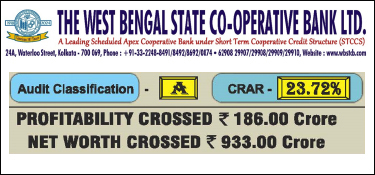Mahesh Jain
Respected sir
I had given a cheque to my society on 24/08/2012 against my maintenance bill. I was also issued a receipt. The society did not present the cheque to my bank.
Now they demand interest of one year on my cheque amount as they say I have used the money for a year. They are trying to bring me in fault by saying that I should have checked my balance and notified them about the cheque not being presented.
Can you please guide me what does the bye laws say on this?
I C Naik
This is a serious cover up by the Committee of its negligence in the duty of the Secretary. As a befitting response, the member may write to the Society as under:
1. As per Section 6 of the Negotiable Instrument Act 1881, (the N I Act) A “cheque” is a bill of exchange drawn on a specified banker and not expressed to be payable otherwise than on demand”
2. As per Section 30 of the N I Act, the drawer of a cheque (the member) is bound in case of dishonour by the drawee (the bank) to compensate the holder (the Society) provided due notice of dishonour has been given to, or received by, the drawer.
3. As per Section 64 of the N I Act cheques must be presented for payment to the drawee (bank) by or on behalf of the holder (the Society). In default of such presentment, the other party thereto ( the member) is not liable to such holder (The Society).
4. Thus neither his bank nor the member was responsible for Society not getting the payment on time.
5. At the most, the Society may hold its bank responsible for the consequences arising out of non-presentation of cheque to the drawee bank demanding the payment.
6. The Society management being negligent in not keeping the track of Cheques deposited in bank for collection, has caused society “loss of interest”.[ Average interest earned on amounts invested in FDs}
7. In terms of provisions of the M. C. S. Act 1960 the Committee members are liable to make this loss good.
8. As a fair deal, the member agrees to pass on the interest his bank has credited to his account on this bank certifying the amount, on a condition that Committee members pay the difference on the interest society earns on the fixed deposits and the amount of interest he agrees to pay.
9. Moreover Society should agree to narrate this event in their annual report, so that such things are not repeated.
10. Only upon the Society passing a resolution in the meeting of its Committee the member will issue fresh cheque.
















































